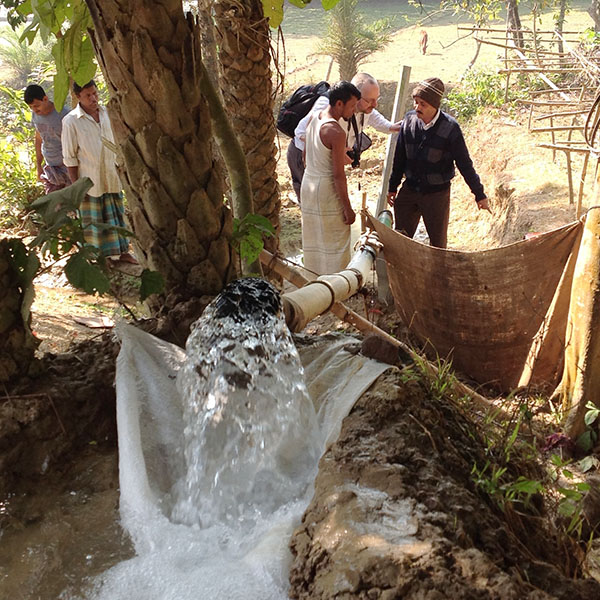
Seeking Consultant for Off-Grid PV Systems for Public Institutions: Delivery Models for Sustainability and Scale
Background:
Access to electricity is vital to the provision of social services. In rural schools and health clinics, for example, electric lighting provides public security and allows facilities to remain open in the evenings. Housing facilities with electricity often attract the most qualified staff members. Beyond lighting, electricity is used to power an array of appliances, such as vaccine refrigerators, and other specialized equipment; pump water; and run a host of communication devices - from radios and television sets to computers and videocassette players - linking rural people to information and urban centers.
In developing countries, many rural community education and health facilities lack access to electricity. For example, among 11 African countries assessed by the World Health Organization in 2013, an average of 26% of health facilities did not have any access to electricity. It is estimated that, globally over 291 million children go to primary schools without any electricity, 188 million of who live in sub-Saharan Africa, South Asia and Latin America.
Photovoltaic systems offer the most practical and least-cost way to access electricity for many public facilities in remote areas beyond the reach of the national grid. However, to realize the potential of off-grid PV for social institutions, several challenges need to be addressed. These challenges are exemplified by the many reported cases in developing countries of poor sustainability/longevity of PV installations, many of which become inoperative after 3-5 years. For example, in a 2015 review by the Malawi Renewable Energy Acceleration Programme, 80% of surveyed community facilities’ PV systems had failed at least once with 38% having lost all service. Anecdotal evidence suggested that 50% of PV systems in Malawi were not operational within their first year. These examples are not isolated cases and have contributed to a poor perception of PV technology in many areas.
Experience reveals that one of the key determinants of the sustainability of an off-grid solar PV system is the type of delivery model used to supply and manage the system over the long run. And yet, little knowledge exists about which models are successful and necessary.
Overview:
The UN Foundation is seeking the services of a Consultancy to carry out a study to evaluate different delivery models for deploying off-grid photovoltaic (PV) systems as well as hybrid systems (e.g. diesel/solar) in public institutions (schools and health facilities) in countries with high electricity access deficits. The analysis should compare and evaluate the models in terms of their scalability and sustainability, particularly their ability to support the long-term operation and maintenance (O&M) of off-grid solar PV systems. While there are several factors that contribute to the sustainability of off-grid PV systems, the study should focus on the technical , organizational and economic pillars of sustainability.
The analysis is intended to help government planners (principally Ministries of Health and Rural Energy Agencies) and their development partners design sound off-grid electrification projects for rural schools and health clinics by helping them evaluate the most effective and appropriate delivery model and financing mechanism for their specific country context. The study is also meant to encourage innovation in the way off-grid PV solutions are delivered to public institutions.
Scope of Work:
The study should evaluate:
• Public-led, private-led and hybrid delivery models for the provision of…
• Stand-alone solar PV systems (and hybrids) for powering…
• Publicly-owned schools and health centers/clinics in resource-constrained
environments in…
• Countries with large energy access deficits (namely those in sub-Saharan Africa and
South Asia).
The study should address the following key questions, among others:
• What delivery models are currently and commonly being used to deploy, operate and
maintain stand-alone systems for public institutions in sub-Saharan Africa and South Asia?
• Who are the main stakeholders involved and what is their role in the delivery model?
• What new models could be developed/used to improve the scalability and sustainability
of interventions (addressing human resource and financial resource gaps)?
• What are the key characteristics of each model and how do they contribute to (or hinder)
scalability and sustainability (particularly O&M)?
• In what contexts is each model appropriate?
• What may be needed (in the way of policies, finance, capacities, institutions, etc.) to make
a model more viable or successful in the long term?
Key Deliverables:
The Consultant shall deliver to the UN Foundation:
1. A detailed methodology/approach for how he/she will undertake the assignment;
2. A final report detailing his/her analysis and recommendations, along with an accompanying PowerPoint presentation.
Requirements:
• Demonstrated knowledge of and experience working on electricity access issues, particularly:
- The design and/or evaluation of off-grid business/delivery models;
- Those relevant to the health and/or education sectors within developing countries
• Demonstrated experience working with international development institutions and government agencies;
• A presence in sub-Saharan Africa and/or South Asia;
• Strong analytical skills/experience;
• Strong written and oral communications skills; proficiency in written and oral English required; • Demonstrated experience producing knowledge products;
• Demonstrated experience managing complex projects;
• Demonstrated independence from political or any other type of influence that could jeopardize the objectivity of the study.
Application:
Please send your application with any relevant documents to Luc Severi, Manager, Energy Access at UN Foundation (lseveri@unfoundation.org). Please put “Application: Delivery Models for Public Institutions” in the subject line. Any questions should be directed to Luc Severi by no later than September 26th, 2018. Replies will be provided by September 28th.
The deadline to submit applications is October 8th, 2018 at 9:00AM EDT.

 Join our list of experts
Join our list of experts